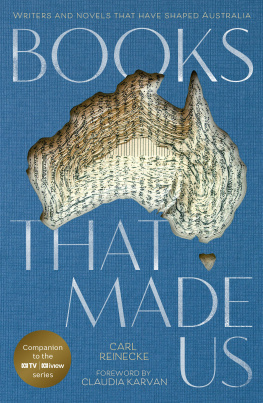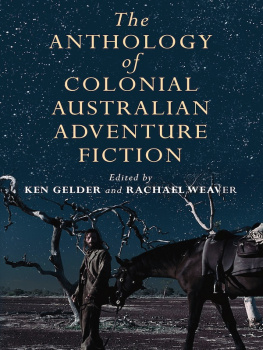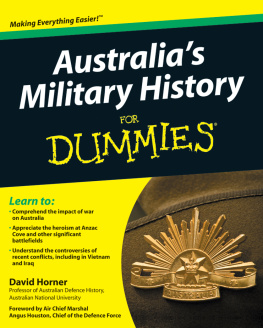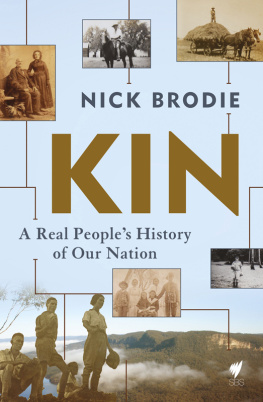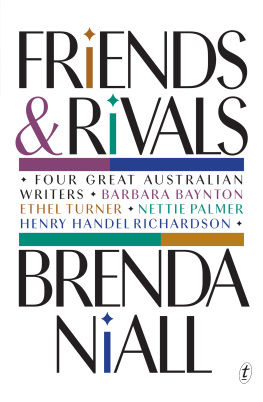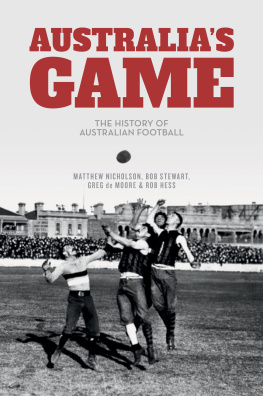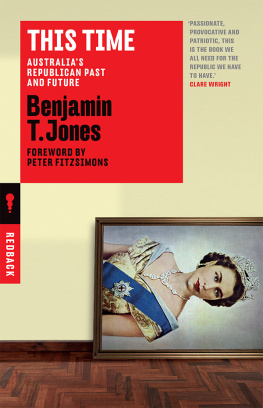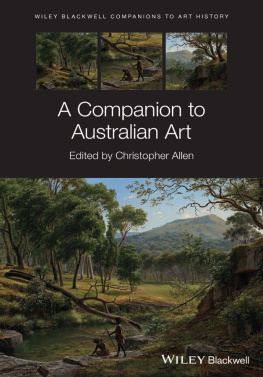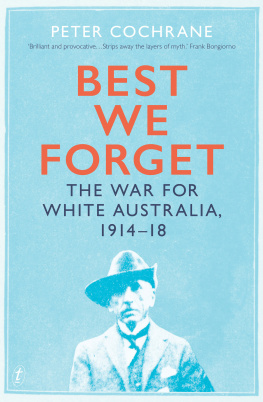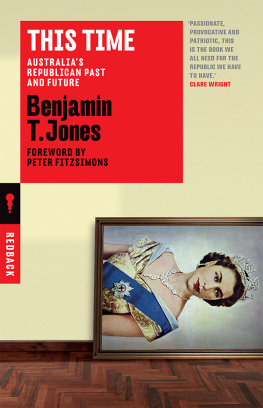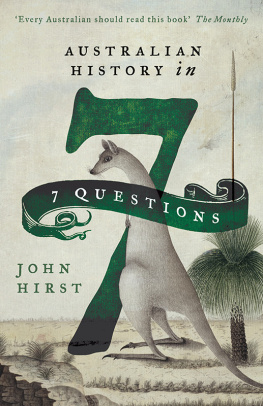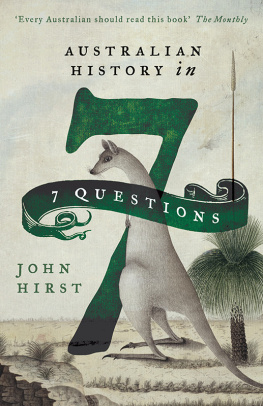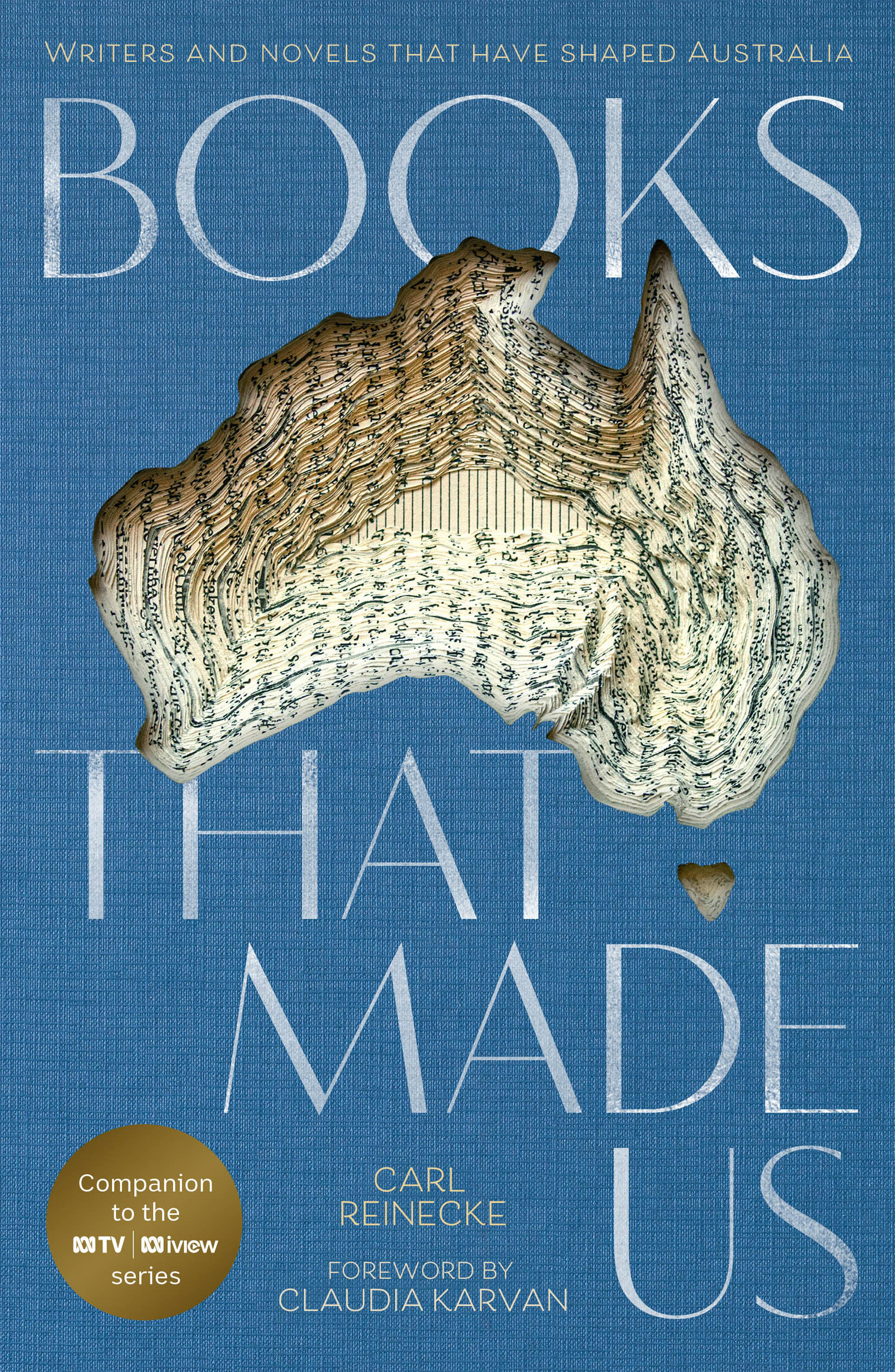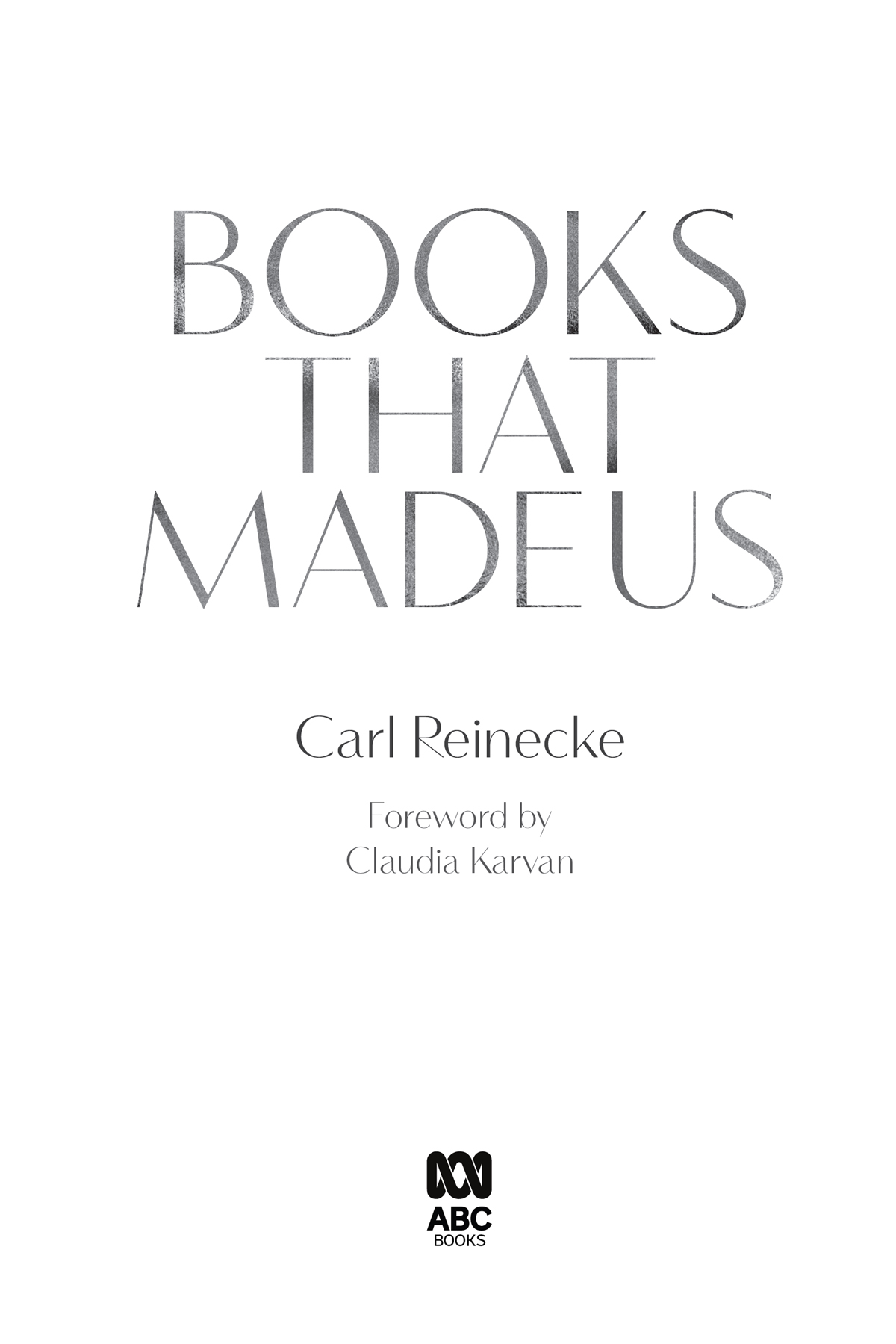Contents
Guide
CONTENTS
More Australians are reading books than ever before. And Im no different. I was a voracious reader as a child and in my twenties, but my focus dipped when kids came along. Now theyre grown up I am returning to the books that have been patiently waiting to be read and I promise my kids that I didnt resent their intrusion on my book reading life... too much!
Im a big believer that sharing our stories whether its through music, art, conversation, inhabiting a character or writing gives our lives meaning. Maybe its because I stopped studying science in Year 10 but theres a line in Muriel Rukeysers poem The Speed of Darkness that says it all for me: she writes that the universe is not made up of atoms, its made up of stories. Books are doors not mirrors. Through books you can travel to far-off places without leaving your bedroom. You can live a thousand lives and be transported in time, become immersed in the landscape of the writers imagination and experience heartbreak and love. Its not just about escaping into a book, its also about being held. The very act of reading is a private interaction that no one else can share. You are never alone reading a book. It teaches you to enjoy your own company. It forces you to ask questions and to empathise. Its been deemed a subversive act. The more you read, the more you discover you dont know.
In my life as an actor, Ive been lucky enough to appear in screen adaptations of some of Australias favourite novels, such as My Brother Jack, True History of the Kelly Gang and Puberty Blues. Theres an inordinate amount of waiting around on set, travelling and living away from friends and family for long periods, and books have always provided me with reliable solace. But like most readers, my taste is pretty scattergun and arbitrary, so I was thrilled when I was asked to host the ABC series Books That Made Us because I wanted to learn more about Australian books.
The three-part series delves into books that have really struck a nerve, books that push us to think differently about ourselves. For my role as host, I had to read almost thirty novels, ranging from Marcus Clarkes For the Term of His Natural Life to Melissa Lucashenkos Too Much Lip, and the task was an intense, focused gift, like a mini-university degree in Australian literature. It gave me the opportunity to reflect on our famous historic novels and also to understand the bedrock from which our contemporary stories are being forged. I was able to meet some of our most beloved and brilliant writers, and experience the places that inspired their magical stories.
The most exciting thing I learned about on this journey is the triumphant emergence in Australian publishing of extraordinary Indigenous voices. Kim Scott, Melissa Lucashenko, Tara June Winch and the inimitable Alexis Wright are all recipients of our greatest federal literary prize, the Miles Franklin, and their books are illuminating to read.
It was a privilege to meet Alexis Wright and read her novel Carpentaria. Its a work of art and she has rewritten the rule book on structure, storytelling and how we should read Australia. Id never understood cyclical or time continuum until I read Carpentaria. The future is in the past and the past is in the present. This book uses a fourth tense not past, present or future, but simultaneous where the spiritual, real and imagined worlds all exist side by side.
Alexis said that Carpentaria was not written from the paternalistic viewpoint from which Australia typically portrays Indigenous people as pathetic welfare cases unable to take care of ourselves. Her book is a testament to the survival of a culture, just like That Deadman Dance, Too Much Lip, The Yield and the many other novels written by First Nations authors. Reading these novels, I was challenged by how often white Australians focus on the loss, the crimes and the regrets, but neglect the wit, resilience and spirituality of First Australians. Weve all been impacted by colonisation in different ways but these books build a movement of Indigenisation. Bring it on! Wesley Enoch says it so succinctly: If we tell our stories, you can no longer oppress us.
I embarked on the role of host with a moderate degree of trepidation, mainly at the hours of reading it would involve. But I underestimated how emotionally challenging the journey would be. Words are powerful. Given the territory that these novels traverse genocide, penal cruelty, suicide, heartbreak I guess I should have belted myself in for a rocky ride.
It was edifying to revisit one of my favourite Australian novels, The Secret River, and explore how this book can speak so differently to Indigenous and white readers. Kate Grenvilles historical novel brought the uncomfortable fact of our countrys massacres into popular culture and its honesty charted new territory for Australian literature. But it also elicited a strong response from people like Nakkiah Lui, who felt angry that white people didnt already know the truth of their history.
Writers arent famous for seeking out the limelight, and my role as interviewer isnt naturally in my wheelhouse, so I couldnt have been more grateful for the generosity of all the writers who met with me. I usually go by the old adage, you should never meet your heroes but Helen Garner is the exception to the rule. She is as present and honest in the flesh as she is on the page. And what a pleasure to re-read Monkey Grip thirty years after Id first read it. Its timeless. Revisiting Patrick Whites books was also reassuring. His words hold as much impact for me now as they did when I was in my twenties.
I was already a fan of Richard Flanagans writing but Id never read Death of a River Guide. It holds one of my new favourite quotes: Death is not the complex matter, life is. And having never heard of Sofie Laguna before, Im now categorically a fan girl. Ive read all four of her adult fiction novels and I wont miss the ones to be published in the future.
Trent Dalton, Tom Keneally, Tim Winton and David Malouf could not have been warmer or more available. I feel so lucky to have spent such a luxurious amount of time with all of them discussing their important works.
The Jerilderie Letter is a revelation and if you havent read it yet, you must! It brings Ned Kelly to life as a living, breathing man instead of the myth, and was the lightning rod for Peter Careys novel True History of the Kelly Gang.
To meet Michael Mohammed Ahmad and hear how Australias racism galvanised him to tell his own story and initiate a writing movement was a highlight. I also learned about courage from Craig Silvey, who diligently researched and wrote the story of a trans kid, in his novel Honeybee.
One of the novels on my reading list was Charlotte Woods The Natural Way of Things, a divisive book which Id avoided reading because Id heard it described as being about misogyny. But when I finally read it I was pleased to be electrified by a story celebrating female friendship, courage and instinct.
This scribe of Australian writers are deep thinking, empathetic and courageous, and they all carry with them a weighty sense of responsibility and an understanding of what it is to tell a story.
One of my most significant relationships, the one with my mother, pivots almost entirely around books. Book recommendations, discussions about books, angry disagreements about books. Our relationship has benefited from the massive education Ive received in Australian literature during the course of this series and Im reminded daily that it is in the sharing with others that books grow into an even more powerful and nurturing force.

